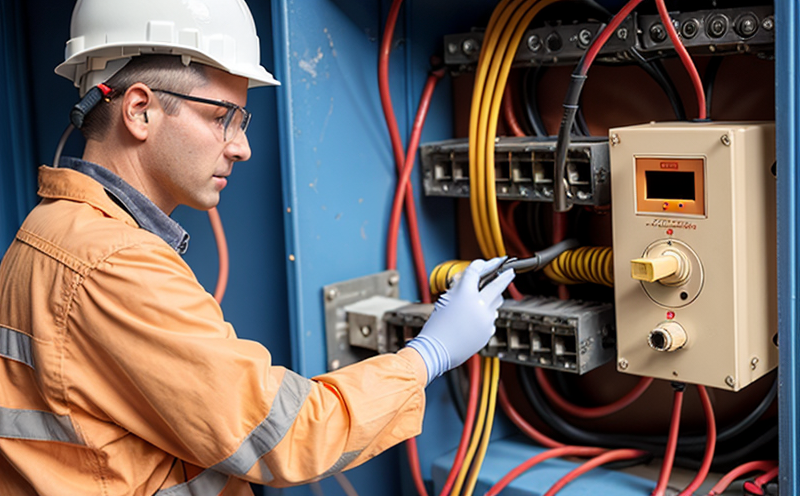IEC 60216 Electrical Safety Testing for Electrical Insulating Materials
The IEC 60216 standard is an internationally recognized guideline that defines the procedures and criteria for evaluating the electrical safety of insulating materials used in high-voltage electrical equipment. This testing ensures that these materials can withstand the stresses they encounter under operational conditions without degrading or failing, thereby safeguarding personnel and equipment.
Electrical insulating materials are critical components in numerous industrial applications, including transformers, capacitors, cables, and other power distribution systems. The integrity of these materials is paramount to prevent electrical breakdowns that could lead to fires, short circuits, and other hazardous situations. IEC 60216 provides a rigorous framework for assessing the insulation properties of materials like polymers, composites, and natural fibers.
The standard specifies various tests including dielectric strength testing, puncture resistance testing, and corona discharge evaluation. These tests are designed to simulate real-world conditions that these insulating materials might encounter during their service life. For instance, the dielectric strength test measures the voltage at which insulation breaks down, while corona discharge evaluation assesses the material's ability to prevent air breakdown under high electric fields.
Instrumentation used in IEC 60216 testing includes specialized test equipment capable of generating controlled electrical stresses on specimens. Specimen preparation involves selecting appropriate samples that accurately represent the materials they will be subjected to during use. This might involve cutting specific dimensions or treating them with certain coatings.
The acceptance criteria for these tests are stringent, ensuring that only insulating materials meeting strict performance standards are approved for use in high-voltage applications. Compliance with IEC 60216 is mandatory for manufacturers seeking to ensure their products meet international safety requirements and can be exported to markets around the world.
Industry Applications
- Power generation facilities
- Transmission and distribution networks
- Electrical equipment manufacturers
- Aerospace and defense industries
The testing outlined in IEC 60216 is crucial for these sectors as it guarantees the reliability of insulating materials used in high-voltage electrical systems. This ensures that products not only meet but exceed safety expectations, thereby protecting end-users from potential hazards.
Competitive Advantage and Market Impact
- Enhanced product reputation through adherence to international standards
- Achievement of regulatory compliance without additional costs
- Potential for market expansion into regions that mandate IEC 60216 certification
- Increased trust from clients and partners in the industry
By ensuring electrical safety through rigorous testing, companies can differentiate themselves by providing products that are not only safe but also reliable. This can translate into better business relationships and increased market share.





